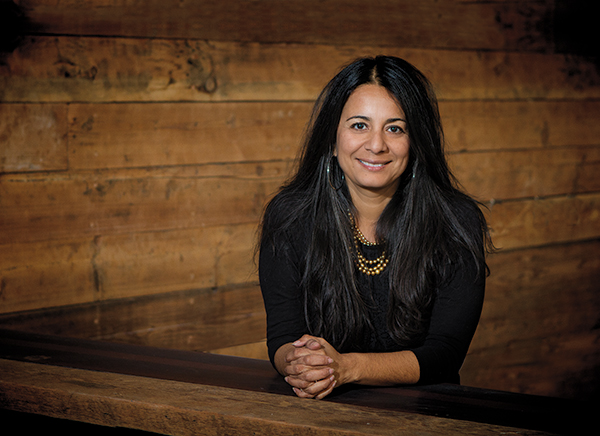Opening Penca: a new Mexican restaurant with historic roots
The paper-covered space downtown at 50 East Broadway has been in the process of emerging into a new restaurant for nearly a year, and soon it’s coming into the world with a name: Penca. “Penca is the rib of the agave,” explains the owner, Patricia Schwabe. “It represents the relationship with the land; a resilient spirit; it’s organic and true to its roots,” she adds, and it’s a name that reflects the place itself.
The address is a building from the 1920s, stripped to its foundation and crafted from the ground up with local and repurposed materials. Schwabe and her husband Ron are owners of Peach Properties, and many of the building materials for Penca have been salvaged and collected from other historic downtown buildings they’ve restored. “It creates a style that to me is personal and local, warm and intimate,” Patricia describes. It’s a style that she hopes will resonate into the drinks – from a cocktail menu being built by Luke Anable – to the food inspired by the fresh, vibrant cuisine found in central and southern Mexico and her own childhood in Mexico City. “I love traditional Mexican restaurants,” she says, “where the ingredients are fresh, the colors are vibrant, and where the service is exceptional.” Schwabe hopes that she can bring a small piece of that downtown, and wants Penca to be “a place where people become friends of the house.”
“The space is warm and minimal – I think romantic, in a way – and almost completely handmade top to bottom,” Anable writes, describing a bar from poured concrete, reclaimed wood and steel. It’s a look he calls honest and transparent, and he wants the drinks he serves there to match in their simplicity. “We think there is a time and a place for most things and we’d like to be able to provide a fitting drink for all occasions,” he notes, aiming for “a return to locality and contextual sensibility” with thoughtful drinks that pair gracefully with food or simply a memorable part of the day.
Schwabe scribbles down a sampling of dishes: huevos florentinos for breakfast, chile ancho glazed albondigas for lunch, short ribs for dinner. The menu will be sourced from local purveyors and farms, equipping chef David Valencia with fresh seasonal flavors to create what he calls “Progressive Mexican cuisine.” Complementing their origins, the courses will be served on dishes made locally at Santa Theresa Tile Works downtown.
Everything that is going into the emerging Penca is locally sourced and made or remade custom to the space, a process that explains its long development. “It takes time to see an idea for what it is,” explains Anable. “We’ve all had bad ideas and, for me, the only way to see them for what they are is to spend time with them, work with them, and see if they can hold up to the weight of experience and practice.” And for Schwabe, who has been involved with every step of the building, the answer is even simpler: creating a new business while simultaneously leasing properties and spending time with her children. Meanwhile the practiced hands of Sonya Sotinsky and Miguel Fuentevilla of FORS Architecture have been at work designing custom booths and chairs from reclaimed wood, most of it from the 1900s. They’ve stripped the restaurant down to its historic foundation.
“The space itself is very old and exposing the foundation, we hope, will remind people of the bigger picture downtown, the importance of preservation and history at a time of redevelopment and revitalization,” Luke Anable wrote to me about the space coming to life. “Everything we’re doing has one foot in the history of the area and one in a sense of what Tucson could and should be as a modern, progressive city.”

Category: FOOD & DRINK, The Scoop





